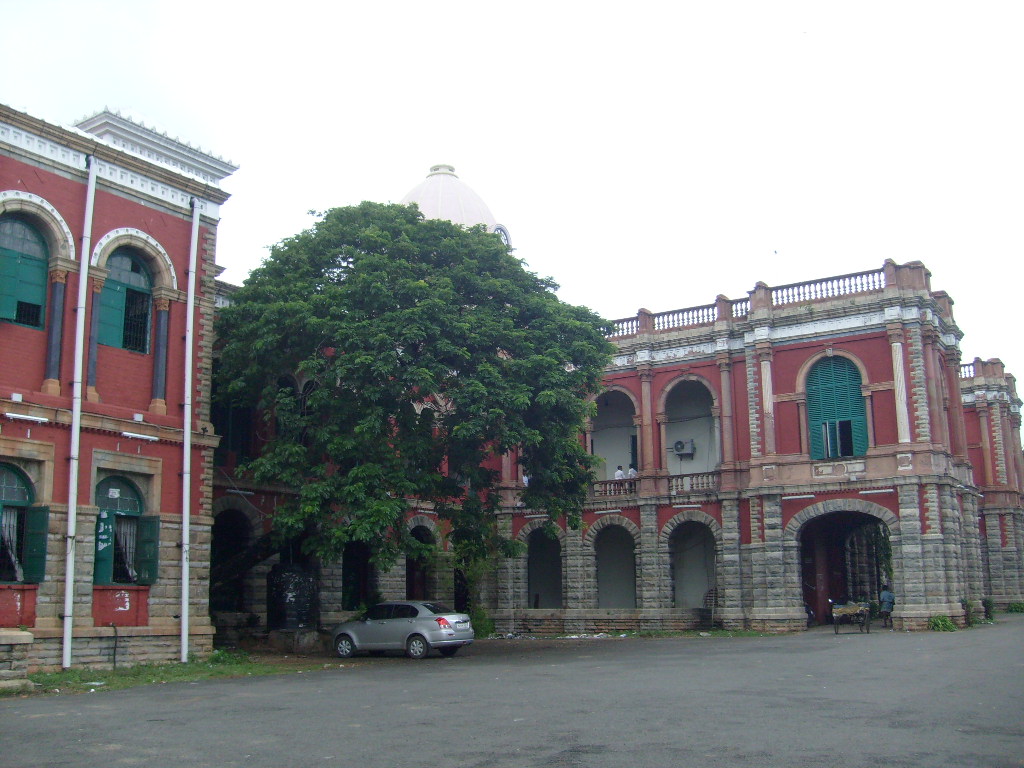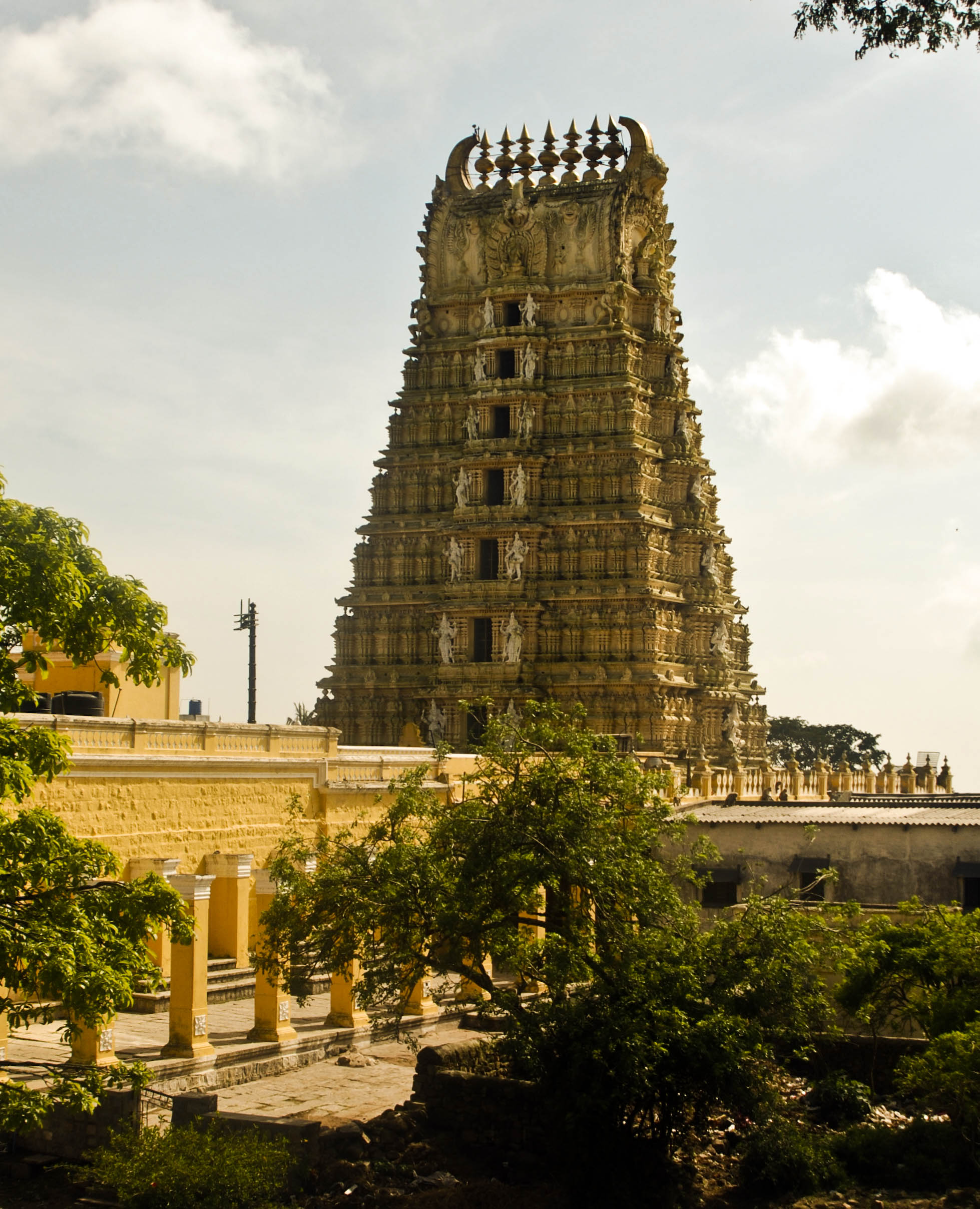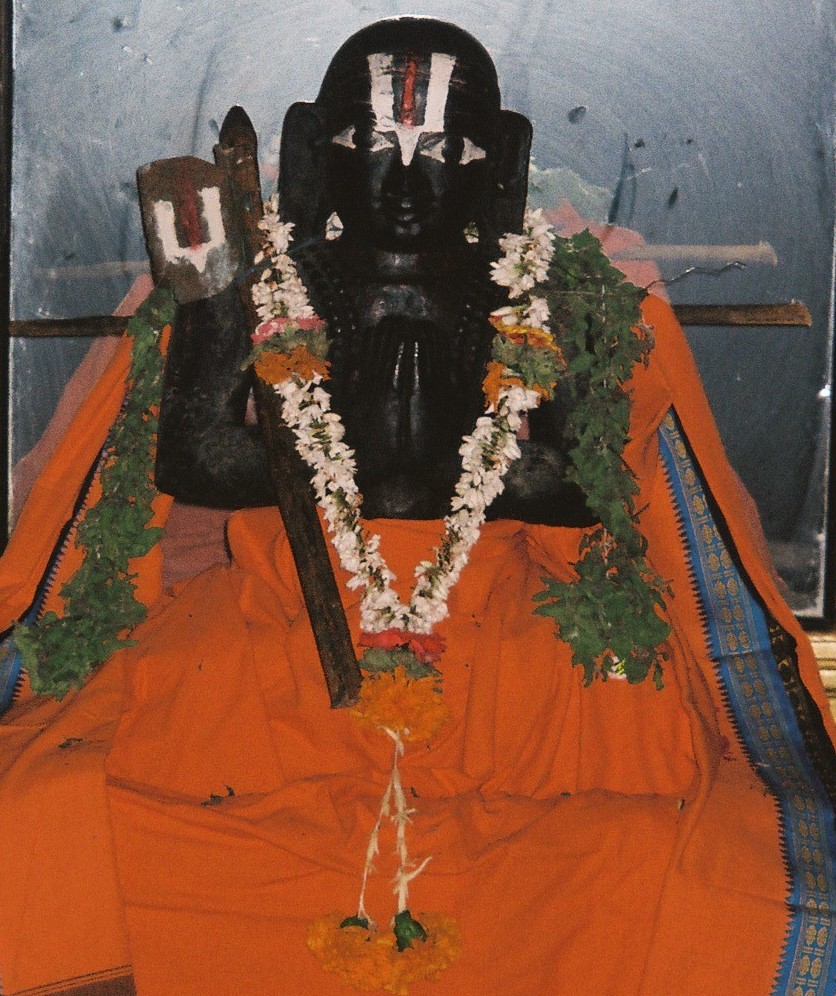|
M. P. T. Acharya
Mandayam Parthasarathi Tirumal Acharya (15 April 1887 – 20 March 1954) was an Indian nationalist, communist and anarchist who was among the founding members of the Communist Party of India (Tashkent group). In a long political and activist life, Acharya was at various times associated with India House in London and the Hindu-German Conspiracy during World War I when, as a key functionary of the Berlin Committee, he along with Har Dayal sought to establish the Indian Volunteer Corps with Indian prisoners of war from the battlefields of Mesopotamia and Europe. Acharya subsequently moved in 1919 after the end of the war to the Soviet Union, where he was one of the founding members of the Communist Party of India at Tashkent. However, disappointed with the Communist International, Acharya returned to Europe in the 1920s where he was involved with the League against Imperialism and subsequently was involved with the international anarchist movement. Early life M.P.T. Acharya w ... [...More Info...] [...Related Items...] OR: [Wikipedia] [Google] [Baidu] |
Madras
Chennai (, ), formerly known as Madras ( the official name until 1996), is the capital city of Tamil Nadu, the southernmost Indian state. The largest city of the state in area and population, Chennai is located on the Coromandel Coast of the Bay of Bengal. According to the 2011 Indian census, Chennai is the sixth-most populous city in the country and forms the fourth-most populous urban agglomeration. The Greater Chennai Corporation is the civic body responsible for the city; it is the oldest city corporation of India, established in 1688—the second oldest in the world after London. The city of Chennai is coterminous with Chennai district, which together with the adjoining suburbs constitutes the Chennai Metropolitan Area, the List of urban areas by population, 36th-largest urban area in the world by population and one of the largest metropolitan economies of India. The traditional and de facto gateway of South India, Chennai is among the most-visited Indian cities by f ... [...More Info...] [...Related Items...] OR: [Wikipedia] [Google] [Baidu] |
World War I
World War I (28 July 1914 11 November 1918), often abbreviated as WWI, was one of the deadliest global conflicts in history. Belligerents included much of Europe, the Russian Empire, the United States, and the Ottoman Empire, with fighting occurring throughout Europe, the Middle East, Africa, the Pacific, and parts of Asia. An estimated 9 million soldiers were killed in combat, plus another 23 million wounded, while 5 million civilians died as a result of military action, hunger, and disease. Millions more died in genocides within the Ottoman Empire and in the 1918 influenza pandemic, which was exacerbated by the movement of combatants during the war. Prior to 1914, the European great powers were divided between the Triple Entente (comprising France, Russia, and Britain) and the Triple Alliance (containing Germany, Austria-Hungary, and Italy). Tensions in the Balkans came to a head on 28 June 1914, following the assassination of Archduke Franz Ferdin ... [...More Info...] [...Related Items...] OR: [Wikipedia] [Google] [Baidu] |
Swami Vivekananda
Swami Vivekananda (; ; 12 January 1863 – 4 July 1902), born Narendranath Datta (), was an Indian Hindu monk, philosopher, author, religious teacher, and the chief disciple of the Indian mystic Ramakrishna. He was a key figure in the introduction of Vedanta and Yoga to the Western world; and is credited with raising interfaith awareness, and bringing Hinduism to the status of a major world religion. Vivekananda became a popular figure after the 1893 Parliament of Religions in Chicago, where he began his famous speech with the words, "Sisters and brothers of America...," before introducing Hinduism to Americans. He was so impactful at the Parliament that an American newspaper described him as, “an orator by divine right and undoubtedly the greatest figure at the Parliament”. After great success at the Parliament, in the subsequent years, Vivekananda delivered hundreds of lectures across the United States, England and Europe, disseminating the core tenets of Hindu philoso ... [...More Info...] [...Related Items...] OR: [Wikipedia] [Google] [Baidu] |
Madras Presidency College
Presidency College is an art, commerce, and science college in the city of Chennai in Tamil Nadu, India. On 16 October 1840, this school was established as the Madras Preparatory School before being repurposed as a high school, and then a graduate college. The Presidency College is one of the oldest government arts colleges in India. It is one of two Presidency Colleges established by the British in India, the other being the Presidency College, Kolkata. History Sir Thomas Munro asked for a Committee of Public Instruction to form in 1826. In 1836, the committee's duties changed to the "Committee of Native Education". The plans drawn up by the committee did not commend themselves to the Governor of Madras, Lord Elphinstone, who proposed nineteen resolutions that passed unanimously. Elphinstone chose E. B. Powell, a University of Cambridge Wrangler in mathematics, to be the first principal, and Powell accepted the post. He arrived in Mumbai (Bombay) on September 20, 1840, ... [...More Info...] [...Related Items...] OR: [Wikipedia] [Google] [Baidu] |
Brahmavadin
''The Vedanta Kesari'' (The Lion of Vedanta) (formerly ''Brahmavadin'') is an English language monthly magazine covering spiritual and cultural issues, published by the Ramakrishna Math in Chennai, India, since 1895. History Under the inspiration of Swami Vivekananda, a group of his disciples in Madras, which included G. Venkataranga Rao, M.C. Nanjunda Rao and Alasinga Perumal, started on 14 September 1895 a monthly journal bearing the title ''Brahmavadin''. One of Swamiji's letters to Alasinga read: "I learnt from your letters the bad financial state that ''Brahmavadin'' is in." Swamiji repeatedly said, "The ''Brahmavadin'' is a jewel-it must not perish!". It continued to be brought out regularly for 14 years, until Alasinga's demise in 1909. From 1909 to 1914, the publication of ''Brahmavadin'' became quite irregular. The last issue was brought out in 1914 (March–April). Soon after, the ''Brahmavadins legacy was continued by a new journal, ''The Vedanta Kesari'', started ... [...More Info...] [...Related Items...] OR: [Wikipedia] [Google] [Baidu] |
South India
South India, also known as Dakshina Bharata or Peninsular India, consists of the peninsular southern part of India. It encompasses the Indian states of Andhra Pradesh, Karnataka, Kerala, Tamil Nadu, and Telangana, as well as the union territories of Lakshadweep and Puducherry, comprising 19.31% of India's area () and 20% of India's population. Covering the southern part of the peninsular Deccan Plateau, South India is bounded by the Bay of Bengal in the east, the Arabian Sea in the west and the Indian Ocean in the south. The geography of the region is diverse with two mountain ranges – the Western and Eastern Ghats – bordering the plateau heartland. The Godavari, Krishna, Kaveri, Tungabhadra, Periyar, Bharathappuzha, Pamba, Thamirabarani, Palar, and Vaigai rivers are important perennial rivers. The majority of the people in South India speak at least one of the four major Dravidian languages: Tamil, Telugu, Malayalam and Kannada (all 4 of which are among the 6 Classic ... [...More Info...] [...Related Items...] OR: [Wikipedia] [Google] [Baidu] |
Mysore
Mysore (), officially Mysuru (), is a city in the southern part of the state of Karnataka, India. Mysore city is geographically located between 12° 18′ 26″ north latitude and 76° 38′ 59″ east longitude. It is located at an altitude of above mean sea level. Mysore is situated at the foothills of Chamundi Hills about towards the southwest of Bangalore and spread across an area of . Mysore City Corporation is responsible for the civic administration of the city, which is also the headquarters of Mysore district and Mysore division. It served as the capital city of the Kingdom of Mysore for nearly six centuries from 1399 until 1956. The Kingdom was ruled by the Wadiyar dynasty, with a brief period of interregnum in the late 18th century when Hyder Ali and Tipu Sultan were in power. The Wadiyars were patrons of art and culture. Tipu Sultan and Hyder Ali also contributed significantly to the cultural and economic growth of the city and the state by planting mulber ... [...More Info...] [...Related Items...] OR: [Wikipedia] [Google] [Baidu] |
Aiyangar Brahmin
Iyengar (also spelt Ayyangar or Aiyengar, pronounced ) refers to the name of an ethnoreligious community of Tamil-speaking Hindu Brahmins, whose members follow Sri Vaishnavism and the Visishtadvaita philosophy propounded by Ramanuja. Found mostly in the Southern Indian states of Tamil Nadu, Karnataka, and Andhra Pradesh, Iyengars are divided into two denominations, the Vadakalai and the Tenkalai. The community belongs to the Pancha Dravida Brahmana classification of Brahmins in India. Etymology There are several opinions regarding the etymology of the term ''Iyengar'', which is the anglicized form of the Dravidian word ''Aiyaṅgār'' (, ). One is that it derives from the Proto-Dravidian word ''ayya-gāru'' ( 𑀅𑀬𑀕𑀭𑀼), which became ''Ayyangāru'' (), and later ''Ayengar''. The term ''ayya'' is the Tamil equivalent of the Sanskrit word ''ārya,'' ( 𑀆𑀭𑁆𑀬/आर्य) which in Sanskrit means ''noble''. ''Gāru'' refers to a form of the Pali term ''gā ... [...More Info...] [...Related Items...] OR: [Wikipedia] [Google] [Baidu] |
League Against Imperialism
The League against Imperialism and Colonial Oppression (french: Ligue contre l'impérialisme et l'oppression coloniale; german: Liga gegen Kolonialgreuel und Unterdrückung) was a transnational anti-imperialist organization in the interwar period. It has been referenced as in many texts as ''World Anti-Imperialist League'' or simply and confusingly under the misnomer '' Anti-Imperialist League''. It was established in the Egmont Palace in Brussels, Belgium, on February 10, 1927, in presence of 175 delegates from around the world. It was significant because it brought together representatives and organizations from the communist world and anti-colonial organizations and activists from the colonized world. 107 out of 175 delegates came from 37 countries under colonial rule. The Congress aimed at creating a "mass anti-imperialist movement" at a world scale. The organization was founded with the support of the Comintern. Since 1924, the Comintern advocated support of colonial and semi-c ... [...More Info...] [...Related Items...] OR: [Wikipedia] [Google] [Baidu] |
Communist International
The Communist International (Comintern), also known as the Third International, was a Soviet-controlled international organization founded in 1919 that advocated world communism. The Comintern resolved at its Second Congress to "struggle by all available means, including armed force, for the overthrow of the international bourgeoisie and the creation of an international Soviet republic as a transition stage to the complete abolition of the state". The Comintern was preceded by the 1916 dissolution of the Second International. The Comintern held seven World Congresses in Moscow between 1919 and 1935. During that period, it also conducted thirteen Enlarged Plenums of its governing Executive Committee, which had much the same function as the somewhat larger and more grandiose Congresses. Joseph Stalin, leader of the Soviet Union, dissolved the Comintern in 1943 to avoid antagonizing his allies in the later years of World War II, the United States and the United Kingdom. It was ... [...More Info...] [...Related Items...] OR: [Wikipedia] [Google] [Baidu] |
Tashkent
Tashkent (, uz, Toshkent, Тошкент/, ) (from russian: Ташкент), or Toshkent (; ), also historically known as Chach is the capital and largest city of Uzbekistan. It is the most populous city in Central Asia, with a population of 2,909,500 (2022). It is in northeastern Uzbekistan, near the border with Kazakhstan. Tashkent comes from the Turkic ''tash'' and ''kent'', literally translated as "Stone City" or "City of Stones". Before Islamic influence started in the mid-8th century AD, Tashkent was influenced by the Sogdian and Turkic cultures. After Genghis Khan destroyed it in 1219, it was rebuilt and profited from the Silk Road. From the 18th to the 19th century, the city became an independent city-state, before being re-conquered by the Khanate of Kokand. In 1865, Tashkent fell to the Russian Empire; it became the capital of Russian Turkestan. In Soviet times, it witnessed major growth and demographic changes due to forced deportations from throughout the Sov ... [...More Info...] [...Related Items...] OR: [Wikipedia] [Google] [Baidu] |
Soviet Union
The Soviet Union,. officially the Union of Soviet Socialist Republics. (USSR),. was a transcontinental country that spanned much of Eurasia from 1922 to 1991. A flagship communist state, it was nominally a federal union of fifteen national republics; in practice, both its government and its economy were highly centralized until its final years. It was a one-party state governed by the Communist Party of the Soviet Union, with the city of Moscow serving as its capital as well as that of its largest and most populous republic: the Russian SFSR. Other major cities included Leningrad (Russian SFSR), Kiev (Ukrainian SSR), Minsk ( Byelorussian SSR), Tashkent (Uzbek SSR), Alma-Ata (Kazakh SSR), and Novosibirsk (Russian SFSR). It was the largest country in the world, covering over and spanning eleven time zones. The country's roots lay in the October Revolution of 1917, when the Bolsheviks, under the leadership of Vladimir Lenin, overthrew the Russian Provisional Government ... [...More Info...] [...Related Items...] OR: [Wikipedia] [Google] [Baidu] |





